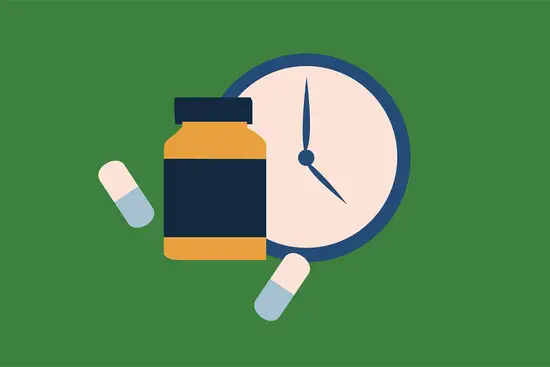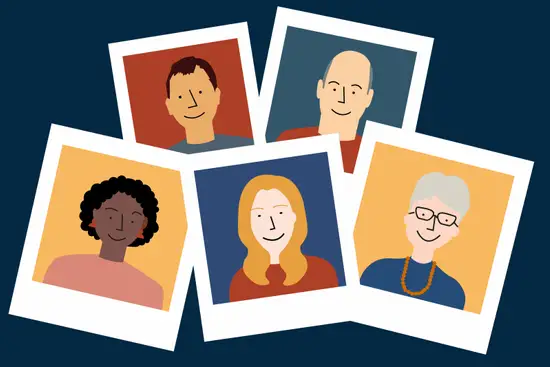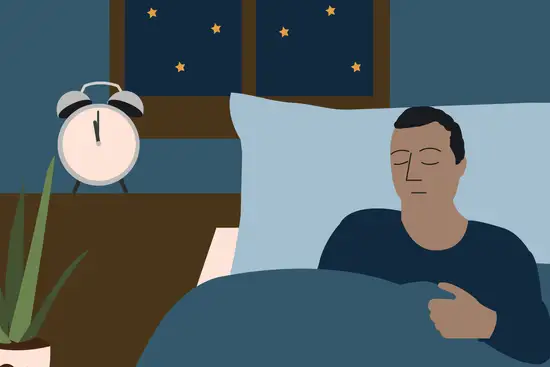Key points
Have you ever wondered what happens when you sleep? On the surface, sleep can seem like a stretch of time where your body and mind power down for the night and then you wake up. But the reality couldn’t be more different!
We’re going to look at exactly what happens as you pass through a healthy night’s sleep and we’ll cover:
- how and why your sleep alters throughout the night
- what’s meant by ‘sleep cycle’ and what it involves
- what’s going on in your brain and body as you sleep
- what are the stages of sleep?
- factors that can disrupt your sleep cycles
- how to ensure you’re getting enough of each sleep stage.
What’s going on during your sleep?
What is sleep anyway? For something we’ll likely spend a third of our lives doing, we don’t tend to give much thought to what’s actually going on during our sleep.
It’s easy to think of the time you’re asleep as simply an empty black void between falling asleep at night and waking up. A time when your body and mind shut down and not much is going on, except maybe the occasional dream.
In reality, this is far from the truth.
What’s happening while you sleep is pretty amazing: your mind and body are a hive of activity, completing important tasks that ultimately lead to you waking up feeling rested and refreshed after a good night’s sleep.
All of this is happening across different and highly organised stages of your sleep. In this article we’re going to guide you through the structure of your sleep.
We’ll explain how sleep is far from a simple state of being in standby mode, how your sleep varies and changes over the course of the night and the important processes that occur as you sleep.
Understanding how your sleep’s structured and what’s happening in your body and mind while you sleep can be really useful if you’re looking to improve your sleep.
So whether you’re interested in understanding more about sleep in general or you’re looking to improve your sleep, come with us as we explore exactly what’s going on during your slumbers and how it affects your mental and physical well-being.
Are you looking for answers about your sleep?
Trying to figure out why you’re not sleeping can be incredibly frustrating when you’re doing it on your own. Our sleep improvement programme helps you identify the root cause of your sleep problem and we’ll support you at every step along the path to healthy sleep
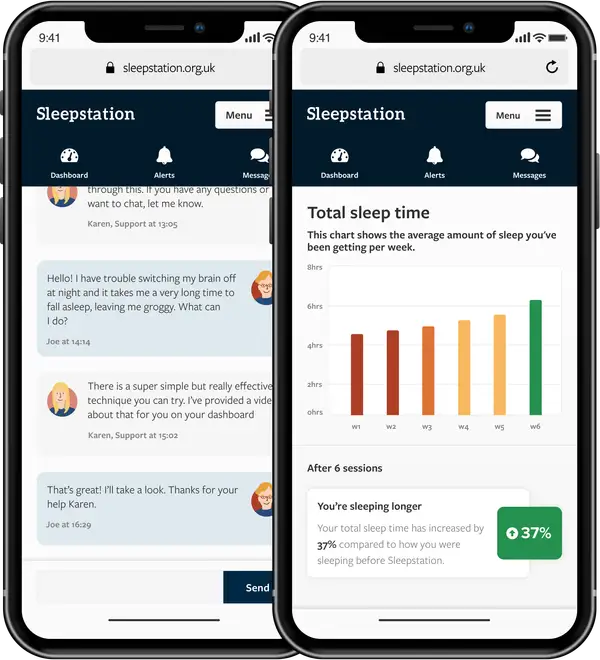
How do we measure sleep?
You might be wondering how exactly we know so much about what’s going on while we sleep. A huge amount of what we know about the structure and function of sleep comes from looking at people’s brainwaves during sleep and while awake.
Over the past century scientific breakthroughs have allowed us to understand a huge amount about the structure of sleep and its potential functions. A key figure in this field of research was a psychiatrist called Hans Berger who, in the 1920s, began researching electrical activity in the brain.
Dr Berger developed a technique to record brainwave activity in humans, which he named the electroencephalogram (EEG), a term still commonly used in sleep science today.1 For the first time, the brain’s electrical activity could be recorded in a person both during sleep and while awake.
This technique led scientists to realise that brainwave activity changed and varied throughout the night, meaning that sleep wasn’t just one simple process that stayed the same. So, definitely not like the standby mode we mentioned earlier.
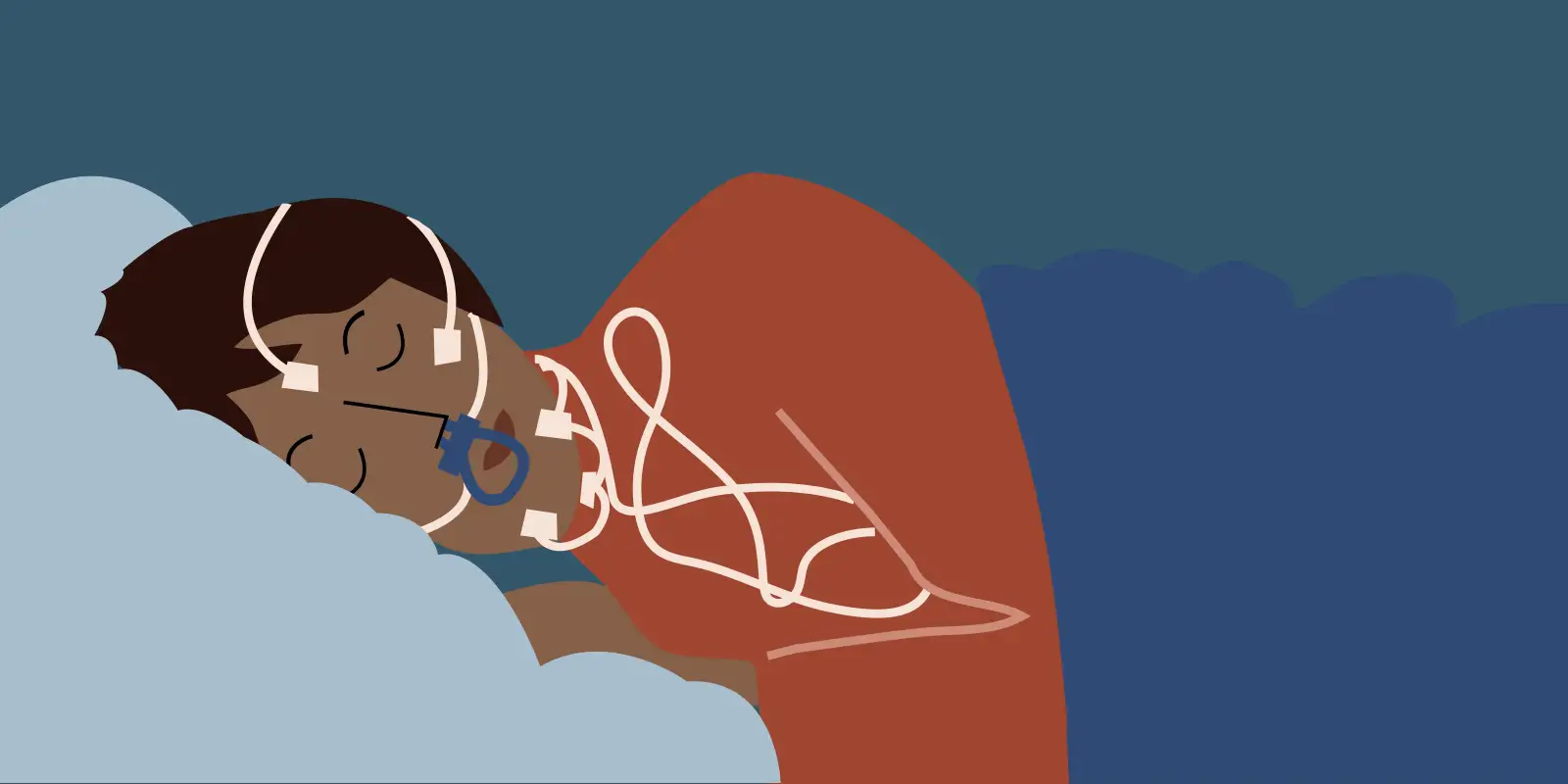
Today in sleep studies, many other measures of sleep are also assessed along with an EEG:
- muscle activity during sleep is measured using electromyography (EMG)
- eye movements are measured using electrooculography (EOG)
- electrical impulses in the heart are measured by electrocardiography (EKG)
- airflow from the mouth and nose can be measured by sensors
- belts placed around the chest and abdomen can monitor movements from breathing
- blood oxygen levels may be measured by a device clipped to the finger, earlobe or toe.
This multi-part assessment of sleep is usually referred to as polysomnography (PSG).
Thanks to these techniques and other advances in sleep research, we now know that sleep is anything but a passive state. It’s complex and involves different stages and depths of sleep.
So let’s continue with a look at exactly how your sleep is organised and structured.
You sleep in cycles
Your sleep is actually made up of cycles, which repeat multiple times during the course of the night. In adults, a normal sleep cycle lasts somewhere between 90 to 110 minutes.2 You’ll normally pass through four to six sleep cycles per night.3
Each sleep cycle is made up of two different types of sleep:
- rapid eye movement (REM) sleep
- non-REM sleep (NREM).
REM and NREM differ in the pattern of your brain waves and brain activity that occurs during them. You spend around three quarters of your time asleep in NREM, with the rest of your sleep being REM.3
When you first fall asleep you enter NREM sleep, which has three distinct stages, often referred to as N1, N2 and N3 or stage 1, stage 2 and stage 3.
You begin sleep at N1 and then pass into N2 followed by N3. As you progress through these stages, your sleep gets deeper and deeper.
After N3, you pass into REM sleep, the stage of sleep that’s best known by its distinctive feature where the sleeping person’s eyes can often be seen to dart around quickly under closed eyelids.
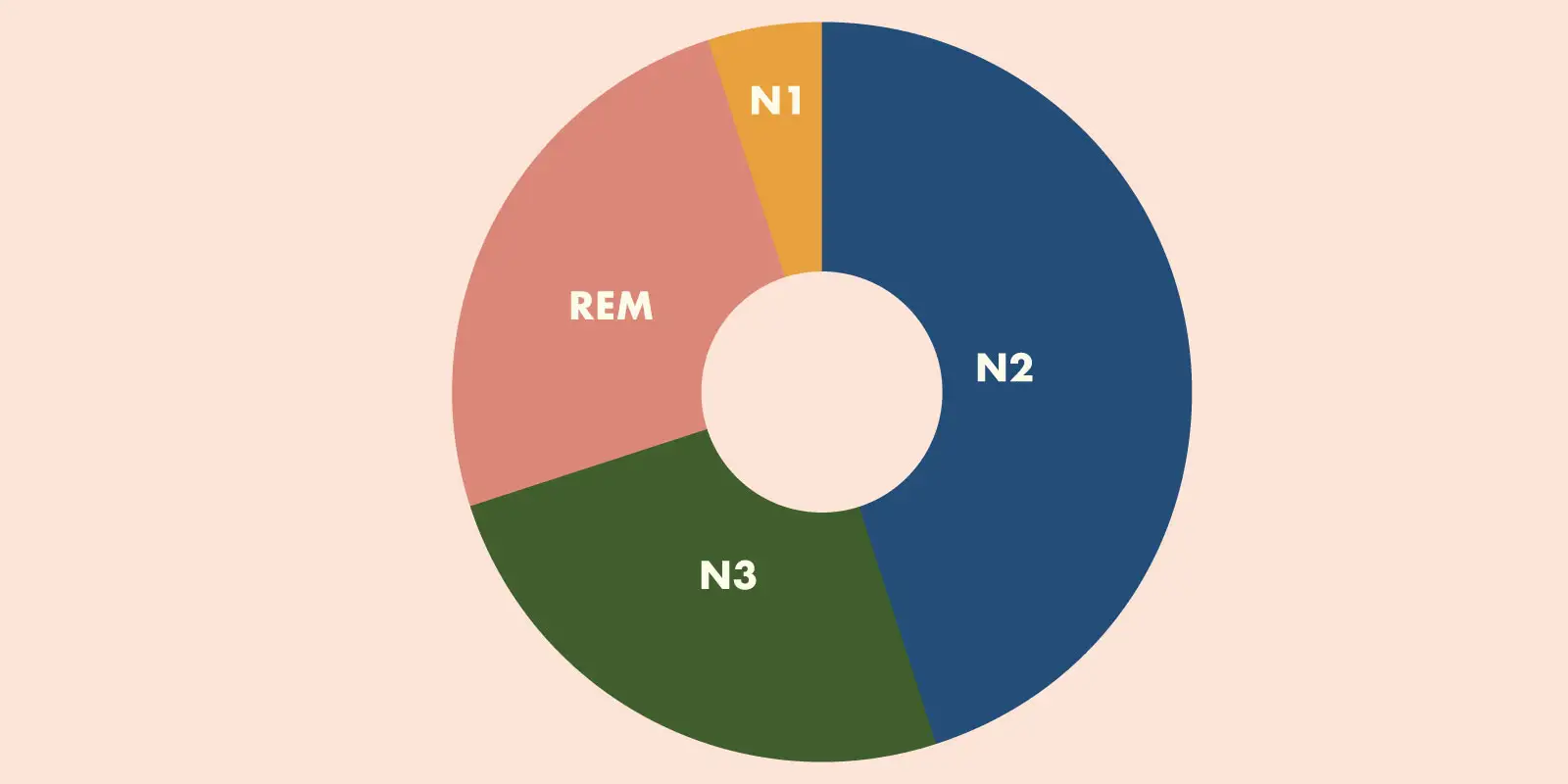
Following REM, you go back into NREM sleep and another cycle begins again. During your first couple of sleep cycles, you’ll experience long periods of uninterrupted deep N3 sleep, with relatively short REM periods.
Later in the night, the REM periods get longer and deep sleep is mostly absent.4 Because there’s less deep sleep, your sleep is lighter and you can be more easily disturbed in the latter part of the night.
So over the course of the night, your NREM sleep periods gets lighter and shorter and your REM sleep periods lengthen. The first third of the night is mostly deep sleep, and the latter part of the night is spent in lighter and REM sleep.
| Sleep stage | Alternative name | Type of sleep | % of total sleep |
|---|---|---|---|
| Stage 1 | N1 | Light sleep/NREM | 1-5% |
| Stage 2 | N2 | Light sleep/NREM | 45-50% |
| Stage 3 | N3 | Deep sleep/NREM | 20-25% |
| Stage 4 | REM | Rem sleep/REM | 20-25% |
What’s happening during each stage of sleep?
Each sleep stage (N1, N2, N3 and REM) is associated with different processes occurring in your brain and body, so we’ll look at this in more detail next. We’ll begin at the point where you fall asleep and continue in order through the entire sleep cycle.
Stage N1 sleep
As we’ve briefly mentioned, the first stage of sleep you experience is called stage N1 or stage 1 sleep. So what exactly occurs during stage N1 sleep?
We all know that lovely feeling as we’re dropping off to sleep. You’re relaxed, sleepy and you feel like you’re starting to drift off. This is N1 and it lasts for around five minutes. It’s the lightest sleep stage and makes up somewhere between 1-5% of your sleep.3
While you’ll likely recognise the feeling of entering N1, where you feel like you’re drifting in and out of sleep, sometimes we don’t consciously realise we’re in stage N1 sleep. It’s a very light sleep stage and you can be wakened very easily from N1.
If you are woken up from stage N1, you’ll probably claim that you weren’t asleep! If you’ve ever been watching TV in the evening or reading a book in bed and the person you’re with tells you that you fell asleep, but you’re adamant you didn’t…. chances are you were actually in stage N1 sleep.
In N1, your breathing and heart rates will decrease and your muscles will begin to relax. The transition from wake to sleep can be ‘bumpy’ too.
As you’re falling asleep, you may experience sudden muscle contractions or ‘jerks’ or a sensation of falling. The scientific name for these jerks is ‘hypnagogic jerks’ (sometimes condensed to hypnic jerks).
They’re also known as sleep starts and they’re caused by involuntary muscle twitches. In addition to these jerks, you might also hear sounds or experience a sensation of a ‘presence’, benign or otherwise, in the room.
Don’t worry though, while you might find these jerks and sensations worrying or even a little scary, they’re in fact normal and harmless bumps in the road towards sleep! We don’t fully understand why they happen but they seem to be glitches in the process of entering sleep.
N1 sleep lasts for somewhere between one and five minutes and then you pass into the next stage of sleep: N2.
Stage N2 sleep
Stage N2 sleep is a deeper state of sleep than N1, but it’s still considered light sleep. Physically, your body is continuing to relax and your heart rate and breathing rate will continue to get slower than they were in N1.
N2 makes up somewhere between 45-50% of your overall sleep and even though it’s the most substantial portion of sleep, it’s the stage we know the least about.3 4 It’s known to play a part in memory, but we don’t yet entirely understand why we spend half the night in this stage.5
In studies where participants were deprived of stage N2 sleep specifically, they’ve shown that a particular form of memory, called procedural memory, was affected.6 This is a type of long-term memory that’s involved in tasks that involve motor skills or actions.
It’s responsible for you being able to carry out things like riding a bike, reading a book or making a cup of tea. So anything that interferes with how much N2 sleep you’re getting may also affect your ability to recall certain actions or impact on you committing a newly learned skill to memory.
During your first sleep cycle, you spend around 25 minutes in N2 sleep. The time spent it N2 typically becomes longer with each sleep cycle.3 From N2, you pass into N3, the deepest of the NREM sleep stages.
Stage N3 sleep
This sleep stage is also known as slow-wave sleep (SWS) and is the deepest sleep stage. During stage 3 sleep, your muscles are relaxed and your heart and breathing rates are at their lowest levels. It can be very hard to wake someone up in stage N3 sleep.
You spend about a quarter of your night in N3 sleep and this stage is considered to be restorative sleep. It’s the part of your sleep that makes you feel like you’ve had a good rest. It also plays a crucial role in making you feel refreshed and energetic during the next day.
N3 is the sleep stage where your body carries out maintenance tasks: your immune system is strengthened, bones are grown and tissues and muscles are repaired.3 Stage 3 sleep is also vital for memory and learning and for this reason children have proportionally more of it than adults.
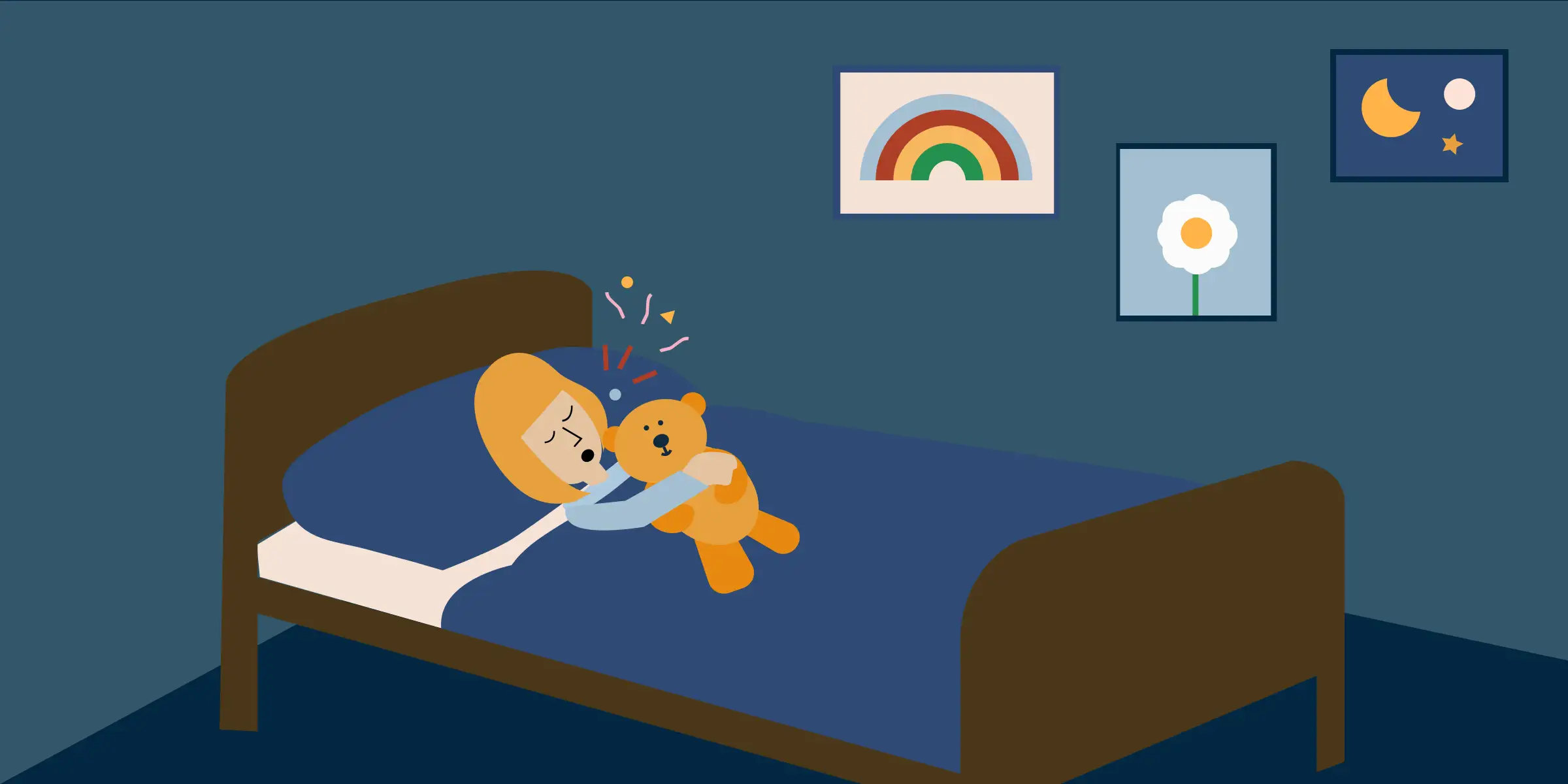
Another reason why children have more N3 sleep is thought to be because it’s the only stage of sleep in which we physically grow. This part of the sleep cycle is also when some people, particularly children, experience behaviours known as ‘parasomnias’ such as:
- bedwetting
- sleep talking
- sleepwalking
- night terrors.7
Interestingly, regardless of sleep need, the amount of deep sleep we get remains fairly stable. So both short and long sleepers have a similar amount of N3 sleep. Scientists think this indicates that a minimum amount of N3 sleep is needed per night, no matter how long you sleep for overall.
Given the apparent importance of this sleep stage, it’s not unsurprising that, after one night of partial or complete sleep deprivation, your brain attempts to make up for all the missed deep sleep. This leads you to experience a feeling of sleeping more soundly after a period of sleep deprivation.
It’s also worth mentioning that you might also come across ‘stage 4 sleep’ in older texts too. NREM sleep used to be divided into 4 stages but stages 3 and 4 were later combined together into stage 3 or N3.8
As the night goes on, the amount of time you spend in N3 sleep gets less in each sleep cycle. So you experience the bulk of your deep sleep in the first third of the night. After the calm and deep sleep of N3, you enter the final stage in the cycle: REM sleep.
REM sleep
Unlike the NREM sleep stages, during REM sleep, brain activity increases and is similar to when you’re awake. Your heart and respiration rates also increase and your breathing can become irregular. It looks very different to deep, N3 sleep.
Your first REM cycle usually begins around 90 minutes after you fall asleep and your time spent in REM lengthens with each sleep cycle.3 Your first REM sleep period is usually quite short, lasting around 10 minutes, but your last REM sleep can be as long as an hour.9
REM makes up around a quarter of your nightly sleep and it’s the phase of sleep in which most dreaming occurs. Most of your muscles are temporarily paralysed during this sleep stage, which stops you from acting out your dreams.
REM is sometimes called paradoxical sleep because your brain activity is high, yet your body is incredibly still.
As we mentioned early on, REM is the abbreviation for ‘rapid eye movement’ because your eye muscles are not paralysed: your eyes can often be seen moving behind your closed eyelids during REM.
It’s during REM sleep that most of your ‘story-like’ dreams occur. You can dream in any sleep stage, but dreams in NREM are generally thought to be shorter, more focused on a single emotion and lack the narrative complexity of dreams in REM sleep.
We don’t fully understand the functions of REM sleep, nor do we know exactly why we dream, so there’s no simple explanation for why we experience REM sleep.
We do know that newborn babies spend around 50% of their sleep time in REM, so it’s been proposed that this sleep stage is important for brain development.10
We also know that when adults are deprived of REM sleep, their ability to form certain memories can be reduced.11 These give us some ideas about the potential roles of REM sleep.
It’s thought that REM is important for forming and linking together certain types of memories. In particular, emotional memories are believed to be processed during REM, which has led to a theory that REM is important for mental health.12
In this way, while you’re in REM sleep, your brain makes sense of emotions that you’ve experienced over the day.11 Because of its association with your emotional memories, REM sleep may play a role in regulating how you feel.
This isn’t clear cut though as one study showed that participants who were deprived of REM sleep for up to two weeks didn’t experience any change in behaviour.13 Similarly, some medications to treat depression can reduce REM sleep without causing negative effects.13
So there’s definitely a lot more we have to learn about REM sleep and its possible functions.
Why are sleep cycles important?
It should be clear from what we’ve covered so far that your sleep is an amazing process that’s fairly complex and highly organised. When something interferes with your sleep cycles, your overall sleep quality will be affected.
If you don’t get enough, good quality sleep your physical and mental health can suffer. Individual sleep need is like height ― we’re all different, and to a large degree, it’s genetically determined.
Anywhere between four and eleven hours can be considered normal, but getting just one hour less sleep a night than you personally need can have measurable effects on your physical and mental health.
In the long-term, poor sleep can have major health consequences. The risk of developing conditions such as obesity, diabetes, certain cancers, heart disease and Alzheimer’s disease have all been linked to poor sleep.14 15
Your body is incredibly good at letting you know whether your sleep needs are being met. If you’re waking up feeling refreshed and revived each morning, your sleep is likely to be on track.
If you feel sleepy during the day, then you’re probably not getting the sleep you need during the night. So let’s look at some of the common factors that can affect both your sleep cycles and your overall sleep.
What can affect your sleep cycles?
Firstly, age has an impact on the stages of your sleep. Two good examples we’ve already highlighted illustrate this well:
- young babies spend a much higher percentage of their sleep time in REM compared to adults
- children need more N3, deep sleep as this is when growth occurs.
So the proportions of each sleep stage will alter throughout your life. As you age, you naturally spend less time in REM and deep sleep too. This is normal and you obviously can’t change the impact of age on the makeup of your sleep cycles!
There are several other things that can influence the structure of your sleep and these are all things that you do have more control over, so let’s look at those.
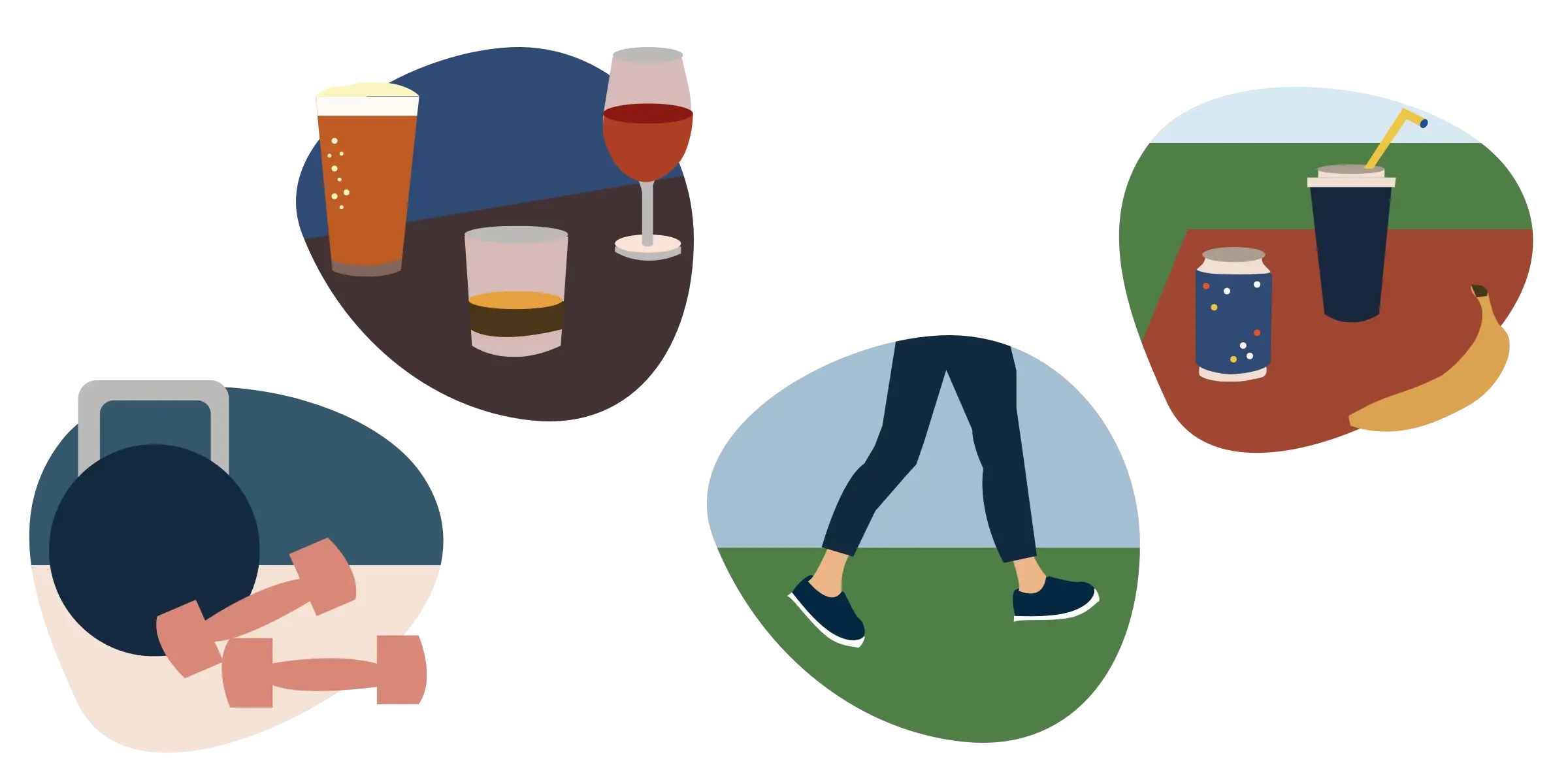
Your mental and physical wellbeing
Anxiety, depression and stress can all interfere with your sleep. We’ve already mentioned that depression can affect how much REM sleep you may experience. Taking care of your mental health is well-established as something that can have a positive impact on your overall sleep.
Likewise, sleeping well can boost your mental wellbeing. So taking steps to destress before bed and finding ways to manage anxiety and depression can help you to sleep more soundly. And when you’re sleeping well, you’re likely to see your mental health improve.
The same holds true for your physical health as this can impact the stages of your sleep. Many medical conditions can interfere with sleep, a good example being chronic pain. Someone living with chronic pain may experience less deep sleep than someone who is pain free.
Being active and exercising regularly can boost your sleep and help you to sleep more soundly. So adopting a healthy lifestyle and managing health conditions can help you to sleep better. And as we don’t tire of mentioning: when you sleep better, you feel better.
Alcohol, caffeine and nicotine
All three of these can alter the structure of your sleep. If you’re looking to improve your sleep overall, it’s a good idea to think about how much caffeine or nicotine you may be ingesting and the timing of this.
Both caffeine and nicotine are stimulants and so may make you feel more awake when you’re trying to get to sleep. If you use either of these and you’re finding it hard to get to sleep, you might want to limit their use in the run-up to bedtime to see if they’re your sleep.
If you drink alcohol, you may want to consider whether what you drink and when could be affecting your sleep. An alcoholic drink in the evening might make you fall asleep quickly at bedtime but your sleep quality will likely be affected.
Alcohol can reduce the amount of REM sleep you get in your early sleep cycles but later in your sleep you’ll likely get more REM. This creates an imbalance between your REM sleep and N3 sleep, ultimately reducing your sleep quality.
Lifestyle and environment
How we live our lives can have a big impact on our sleep. Factors such as the amount of time you spend watching screens each night, the temperature of your bedroom or whether or not you’re a shift worker can all affect your sleep cycles.
If you’re getting up early and going to bed extra late, you’re probably not going to get the amount of sleep you need to be at your best, so this will affect your sleep and sleep cycles. Simple lifestyle changes can have powerful effects on your sleep, as can tweaks to your sleeping environment.
In fact, most of the factors in this list (except age) are things that you have a lot of control over, so making small but positive lifestyle changes can help you get enough sleep and sleep well. Let’s look in a bit more detail at how to ensure your sleep’s top quality.
How to keep your sleep on track
How can you tell if you’re getting enough of each sleep stage? If you’re sleeping well and waking up refreshed and energised in the morning, chances are you’re getting enough of each sleep stage and you’re getting sufficient sleep.
The best way to make sure you’re getting the right balance of each stage in the sleep cycle is to adopt good sleep habits, to ensure your overall sleep is of good quality and duration. There’s no magic way to boost one single sleep stage over the others.
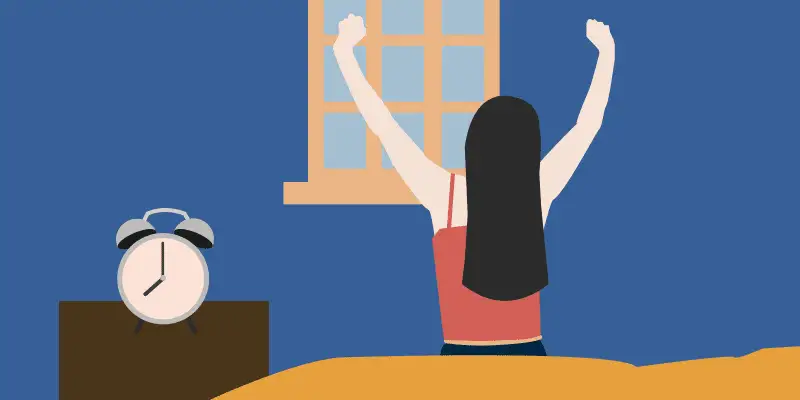
It’s worth mentioning sleep trackers here too. Many people have wearable sleep trackers or use phone apps to track their sleep. If you use either of these, keep in mind that these types of sleep tracker aren’t 100% accurate.
They can give you a rough idea of what’s going on when you sleep but the breakdown of your sleep stages is likely to be much less accurate as it’s based on your movements and heart rate, without examining your brainwaves.
If you do use a sleep tracker, try to think of it as tool to show rough trends in your sleep and don’t get hung up over whether or not it thinks you’re getting enough of each sleep stage.
Simple steps to keep your sleep on track can include:
- keeping to a good sleep schedule: go to bed and get up at the same times each day
- following a consistent wind-down routine each evening to help you relax and prepare for sleep
- making sure your sleep space is a calm and inviting place that you look forward to going to each night
- limiting alcohol, caffeine and nicotine in the run-up to bedtime
- spending time away from screens (TV, laptop, tablet, smartphone) in the hour or so before you go to bed.
Adopting positive sleep practices like those listed above can all contribute to developing healthy sleep cycles. If you’re worried about your sleep or you’re not able to get the sleep you need, you might need a more personalised approach.
Whether you’ve not been sleeping well for a short time or you can’t remember the last time you got a good night’s sleep, Sleepstation can help you identify the root cause of your sleep problems and we’ll work with you improve your sleep.
We don’t just offer generic advice, we take the time to look at your sleep individually, allowing us to customise a sleep improvement plan specifically to your needs.
We then help you to break down the barriers between you and the sleep you need and provide you with the tools necessary to rebuild healthy sleep. And you’ll be supported at every step of the way by our team of sleep coaches too.
If you want to get your sleep back on track, take the first step today by answering a few short questions about your sleep and see how Sleepstation could help you.
Summary
- Your sleep is made up of different stages that repeat in cycles throughout the night.
- There are two distinct states of sleep, REM and NREM.
- While you sleep, your brain processes all the information you’ve taken in during the day.
- Deep sleep is also known as restorative sleep as it helps you to wake up feeling refreshed and well-rested.
- REM sleep may be important for processing emotions and it’s when you experience most of your story-like dreams.
- The key to keeping your sleep cycles in check is to ensure you’re getting enough good quality sleep each night.
- If you think your sleep needs improving, Sleepstation can help you.
References
- İnce R, Adanır SS, Sevmez F. The inventor of electroencephalography (EEG): Hans Berger (1873-1941). Childs Nerv Syst 2021; 37: 2723–2724. ↩︎
- Memar P, Faradji F. A novel multi-class EEG-based sleep stage classification system. IEEE Trans Neural Syst Rehabil Eng 2018; 26: 84–95. ↩︎
- Patel AK, Reddy V, Shumway KR, Araujo JF. Physiology, Sleep Stages. StatPearls Publishing, 2022. ↩︎
- Rasch B, Born J. About sleep’s role in memory. Physiol Rev 2013; 93: 681–766. ↩︎
- Ackermann S, Rasch B. Differential effects of non-REM and REM sleep on memory consolidation? Curr Neurol Neurosci Rep 2014; 14: 430. ↩︎
- Smith C, MacNeill C. Impaired motor memory for a pursuit rotor task following Stage 2 sleep loss in college students. J Sleep Res 1994; 3: 206–213.
↩︎ - Shakankiry E. Sleep physiology and sleep disorders in childhood. Nat Sci Sleep 2011; 3: 101–114. ↩︎
- Moser D, Anderer P, Gruber G, Parapatics S, Loretz E, Boeck M et al. Sleep classification according to AASM and Rechtschaffen & Kales: effects on sleep scoring parameters. Sleep 2009; 32: 139–149. ↩︎
- Della Monica C, Johnsen S, Atzori G, Groeger JA, Dijk D-J. Rapid Eye Movement sleep, sleep continuity and Slow Wave Sleep as predictors of cognition, mood, and subjective sleep quality in healthy men and women, aged 20-84 years. Front Psychiatry 2018; 9: 255. ↩︎
- Boyce R, Glasgow SD, Williams S, Adamantidis A. Causal evidence for the role of REM sleep theta rhythm in contextual memory consolidation. Science 2016; 352: 812–816. ↩︎
- Daftary AS, Jalou HE, Shively L, Slaven JE, Davis SD. Polysomnography reference values in healthy newborns. J Clin Sleep Med 2019; 15: 437–443. ↩︎
